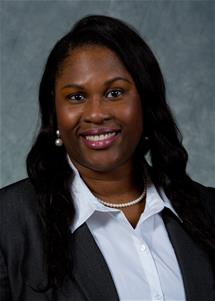NILOA Report Examines Collaborative Focused on HBCU Assessment
by Erick Montenegro / Nov 16, 2018

The National Institute for Learning Outcomes Assessment (NILOA) is pleased to announce the release of a new report, Assessment, Accountability, and Student Learning Outcomes at Historically Black Colleges and Universities, authored by EPOL student and newly minted Ph.D., Dr. Verna F. Orr, NILOA Research Analyst and CEEQA Co-chair. The report highlights the inaugural convening of the Historically Black College and University (HBCU) Collaboration for Excellence in Educational Quality Assurance (CEEQA) that took place June 21-22, 2018, on the historic Morehouse School of Medicine campus in Atlanta, GA. Candid conversations around student learning outcomes assessment happening on HBCU campuses framed the conference agenda. These discussions centered on solutions to common assessment challenges and the need for an official HBCU collaborative of practicing and retired assessment professionals. This collaborative, the first on its kind, seeks to help address accountability measures while being true to HBCU missions and culturally relevant assessment approaches. Hence, as both internal and external accountability mandates increase, so too has the need for a strong HBCU alliance. CEEQA can offer significant resources and specific expertise to the HBCU community and higher education community in general.
HBCUs - colleges or universities founded before 1964 that have a historic and contemporary mission of educating the African American community - have historically served large populations of underrepresented, low-income, first-generation, and students of color all-the-while being severely under-supported, underfunded, and over-scrutinized. In this context, it is important to know how HBCUs respond to both internal tensions (various needs of a diverse student population) and external tensions (potential students and their families, the public, funding agencies, legislators, etc.) of accountability. One of the many HBCUs’ strengths that helps define what makes them successful is their culturally relevant assessment practices, but how have they communicated or are communicating their success stories? The inaugural convening of CEEQA provided insight into the positive and negative aspects of accountability and transparency and unpacked assumptions about HBCU assessment practices and student learning outcomes.
There is very little knowledge about assessment, accountability, and student learning outcomes at HBCUs. It is important, if not vital, for HBCUs to be at the forefront of their student learning outcomes success stories. As one CEEQA founding member noted "We have skirted around trying to explain our relevance or to prove why we are relevant…we are relevant because we do this for our community. There are two choices 1. Tell our own story, or 2. Our story being told for us…but the story will be told."
Conversely, there is a significant problem in the current literature on assessment and student learning at HBCUs in that it has been studied primarily from a western European ideology that does not consider diverse cultural contexts. Undoubtedly, there is a dearth of literature on assessment practices and student learning outcomes at HBCUs that can be filled by listening to and learning from united voices of those who do the work, every day. CEEQA aims to fill this void through a collaborative partnership between HBCUs conceptualized by the Office of Educational Outcomes and Assessment at Morehouse School of Medicine, the Office of University Assessment at Florida Agricultural and Mechanical University, and the National Institute for Learning Outcomes Assessment (NILOA).
The vision of CEEQA is to leverage the collective expertise of assessment professionals to promote the use of best-practices in assessment and evaluation and to demonstrate the effectiveness of HBCUs in the achievement of common educational aims. To make this vision a reality, CEEQA has four primary goals:
- Maximize the use of tools, processes, and human resources dedicated to outcomes assessment and evidence-based decision making at partner HBCU institutions,
- Enhance the use of systematic, evidence-based practices for assessment and institutional effectiveness among partner institutions to more effectively communicate assessment outcomes to internal and external stakeholders,
- Provide a platform for showcasing the culturally relevant assessment and evaluation practices that are used at HBCUs to tell our story and to demonstrate the impact of HBCUs within the academy, and
- Provide an opportunity for shared scholarly output in the form of joint research, publications, and conference presentations for assessment, institutional research, and institutional effectiveness professionals at partner institutions.
HBCUs must remain student focused and address myriad possibilities and challenges their diverse student populations possess. "We need to understand where our students are excelling and falling short, noted a CEEQA founding member during the inaugural CEEQA convening. We should celebrate successes and seek to understand shortfalls from an empirical standpoint versus an anecdotal standpoint and then develop and fund proven evidence-based programs and strategies that are going to fill those gaps. In some instances, we can identify and know where the gaps are but we don’t find the strategies that we need to plug those gaps and oftentimes try to put on superficial Band-Aids with the hope that it will be addressed somewhere down the road."